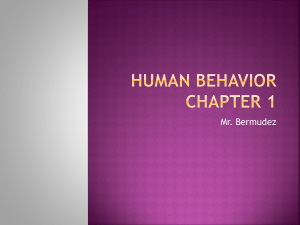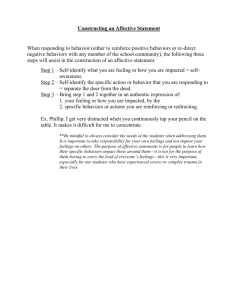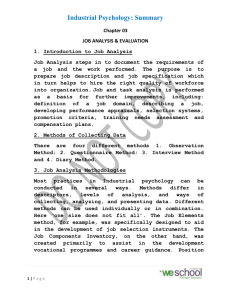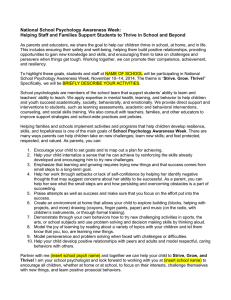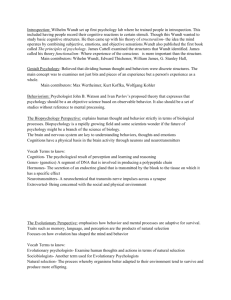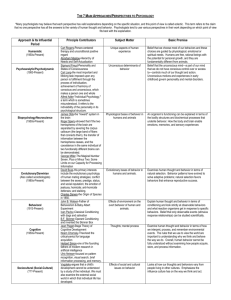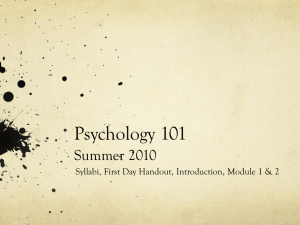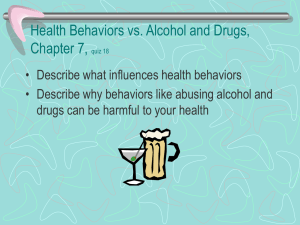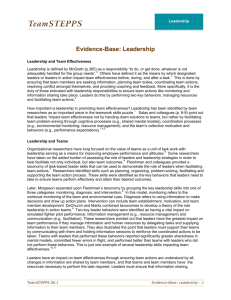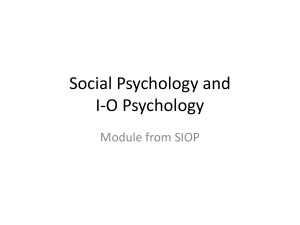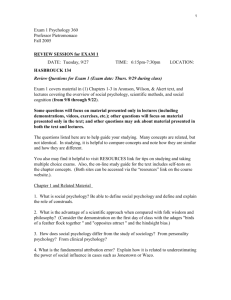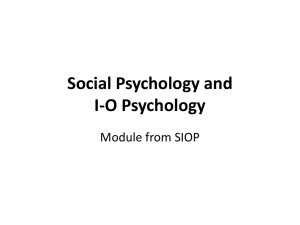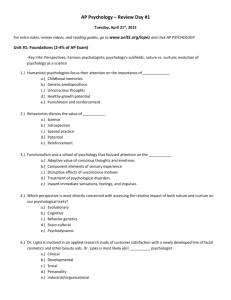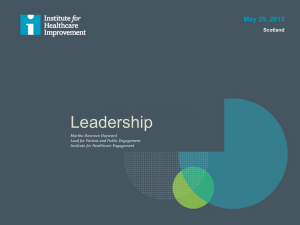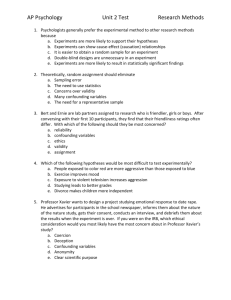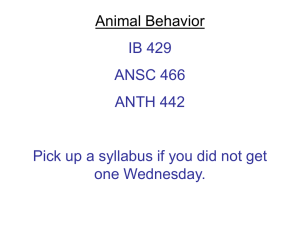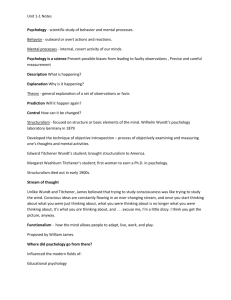Overview and Methodology
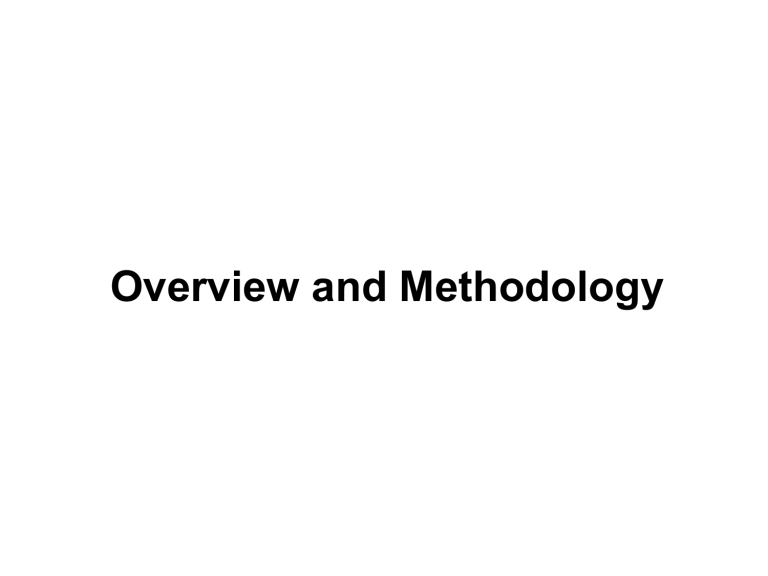
Overview and Methodology
Overview
Macrosociology: the science or study of the origin, development, organization, and functioning of human society and large-scale social systems.
Microsociology: the branch of sociology that studies the impact of human society on small groups and individuals.
Both are based on interpretative analyses, rather than empirical analyses, of human behavior in reaction to societal influences without experimental manipulations.
Social Psychology: the scientific study of how people think about, influence, and relate to one another; how your thoughts, feelings, and behaviors affect other people’s thoughts, feelings, and behaviors and vice versa. The research is typically based on empirical analyses of experimental manipulations of humans in laboratory and naturalistic environments.
I. Major Themes in Social Psychology
A. Social reality is a subjective experience.
B. Social thinking is a dual process… both conscious and unconscious.
C. Social influence affects nearly every aspect of our lives.
D. Personality characteristics affect our thoughts, feelings, and behaviors.
E. Research in Social Psychology has cross-cultural consistencies and inconsistencies.
1) Culture: the beliefs, attitudes, and behaviors shared by a large group of people that get transmitted from one generation to the next.
F. Biological factors affect our thoughts, feelings, and behaviors.
1) Evolutionary Psychology: a branch of psychology that examines the role of tens, if not hundreds, of thousands of years of inherited genetic factors in human behavior.
Three components of evolution:
a) Variation: organisms in a given species will vary.
b) Inheritance: some variations can be passed down from generation to generation.
c) Selection: certain variations help organisms survive. Over time, more members of the species possess the variation.
2) Social Neuroscience: an area of research in which social psychologists try to understand the neural and biological bases of social processes.
II. Big Question… Is Social Psychology the science of commonsense?
A. Hindsight Bias: the tendency for people with outcome knowledge to (a) believe falsely that they would have predicted the reported outcome of an event or (b) exaggerate the extent to which they had foreseen the likelihood of its occurrence.
B. Dueling Proverbs…
Don't cross the bridge until you reach it
An eye for an eye & a tooth for a tooth
Good things come to those who wait
Ignorance is bliss
BUT
BUT
BUT
Forewarned is forearmed
Turn the other cheek
Two wrongs don't make a right
The early bird gets the worm
The pen is mightier than the sword
BUT Knowledge is power
BUT
Actions speak louder than words
Sticks & stones can break my bones, but words will never hurt me
There's no such thing as a free lunch
If you want something done right, do it yourself
When in Rome, do as the
Romans do
You can't teach an old dog new tricks
Good things come in small packages
BUT
BUT
BUT
BUT
BUT
The best things in life are free
Two heads are better than one
To thine own self be true
You're never too old to learn
The bigger the better
Methodology
Theory: an explanation or model created from a great many observations and capable of making valid predictions or hypotheses .
Falsifiable: stated in such clear, precise terms that we can see what evidence would count against it.
Hypothesis: a tentative explanation for an observation that can be tested through research .
I. Basic Research Designs
A. Correlational Study: a procedure in which investigators measure the correlation between 2 variables without controlling for either of them.
1) Correlation: a measure of the relationship between 2 variables.
2) Correlation Coefficient: a mathematical estimate of the relationship between 2 variables: The range is –1 to +1.
B. Experiment: a study in which the investigator manipulates at least one variable while measuring at least one other variable.
1) Independent Variable: the item that the experimenter manipulates to get an effect.
2) Dependent Variable: the item that the experimenter measures to see if the independent variable had an effect.
3) Experimental Group: group that receives the treatment
(Independent Variable) that an experiment is designed to test.
4) Control Group: group that is treated just like the experimental group, but does not receive the treatment.
5) Random Assignment: experimenter uses some random process of assigning people to each group.
C. Scientific Method: the way in which scientists go about investigating and making claims about phenomena.
1) Hypothesis: a tentative explanation for an observation that can be tested through research .
2) Method: the process by which you test your hypothesis .
3) Results: the recorded outcome of the method.
4) Interpretation: your evaluation of the results.
5) Replicability: the ability for other people to replicate previous results through further experimentation using the same procedures.
6) Operational Definitions: a definition that specifies the procedures used to produce or measure something.
II. Sampling
A. Population: the entire group of people to be considered .
B. Sample: a small number of people taken from the population .
1) Convenience Sample: a sample that can include anyone.
2) Representative Sample: a sample that closely resembles the population you are studying.
3) Random sample: each member of the population has an equal chance of being selected for the sample.
III. Forms of Data Collection
A. Survey: a study of the prevalence of certain beliefs, attitudes, or behaviors based on people’s responses to specific questions.
B. Naturalistic Observation: a careful examination of what happens under more or less natural conditions.
C. Laboratory Observation: behavior is observed and recorded in a controlled environment.
IV. Other Factors
A. Ethical Concerns with Humans: experimenters must be careful that the designs of the their studies do not harm participants mentally, emotionally, or physically.
B. Deception: in research, when participants are misinformed or misled regarding a study’s methods and purposes.
C. Informed Consent: a statement informing participants what to expect in an experiment and that requires their acceptance of the procedures.
D. Debriefing: an important post-experiment interview between experimenters and participants verifying that participants are fully informed about, and were not harmed in any way by, their experience in an experiment.
